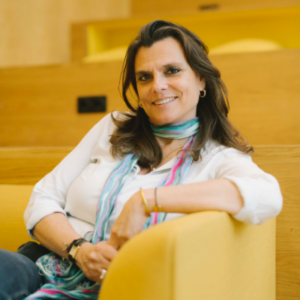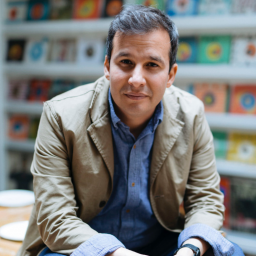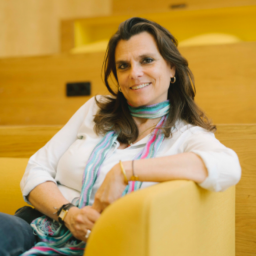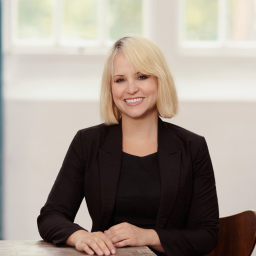Meaningful Business (MB:) How has the fundraising landscape changed over the last year?
Hans van Houwelingen (HvH:) While the world is still adjusting to the shock of the global COVID-19 outbreak and its repercussions in every social and economic activity, we clearly see that some of the gloomiest predictions for the effects on the flow of capital have not quite materialised. And that is very encouraging.
Annual figures for 2020 on the venture capital (VC) deal activity, compiled by PitchBook, show that VC deal value in Europe reached another historical record at € 42.8 billion (or 14.8% higher than in 2019) amid renewed investor optimism. New startups have attracted also a record € 3.1 billion from investors for their first-time rounds, while the rest of the VC investments have been allocated to follow-on rounds.
Apparently the European startup ecosystem has remained vibrant and in good health despite the global economic turbulence caused by the pandemic.
MB: What has been your approach to meeting and investing in entrepreneurs remotely?
HvH: We started our activities last year and we are still in preparation for our inaugural VC impact investing fund. As such we have have been operating only in the ‘new normal’ way so far, with video conferencing both for first introductions and for follow-up communication.
On the positive side, video meetings are a very time-efficient and topic-focused alternative for communication, and have limitless geographical reach. On the negative, however, and especially for the VC investing industry, live interactions with founders on both formal and informal occasions are instrumental for building the right kind of relationship and trust basis between the investor and the entrepreneur for a long and challenging journey towards a common goal.
MB: What are some of the impact areas you are currently focused on?
HvH: The mission of Urban Impact Ventures is to contribute to an improved urban quality of life in Europe by investing for profit-with-purpose in entrepreneurs supporting the sustainable transformation of our cities. We look at the sustainable transformation of cities through the lens of four investment themes:
- Mobility (public transport; city logistics; shared mobility; electric vehicles; autonomous vehicles, new modalities, smart parking),
- Liveability (quality housing; social structures; green spaces; public safety; environment; peer-to-peer exchanges; sustainable lifestyle; inclusiveness, resilience and adaptation),
- Physical Infrastructure (green buildings; urban farming; waste and circularity; clean energy and energy efficiency; water management; connectivity),
- Digital Infrastructure (civic technologies; government administration, data, communication and services technologies; voting and public inclusion technologies).
We aim for a measurable net positive contribution to the UN Sustainable Development Agenda 2030, with a specific focus on 8 of the 17 SDGs, which we believe are in the core of the urban transformation, plus the goals related to gender equality and the promotion of inclusive economic growth and decent work conditions for all.
MB: What alternative avenues can entrepreneurs look at for raising capital right now?
HvH: Capital raising channels have not changed much as compared to the ‘old normal’. External funding routes are all well-known: accelerator/incubator programs; business angels; venture capital investors. Channels specifically focused on impact entrepreneurs emerge and develop at a rapid pace.
Public grants, though not a typical equity component, are also a familiar source of specific R&D funding, and maybe the COVID-19 reality has amplified their role especially for very impactful innovations in priority sectors such as health and bio technologies, as well as clean and climate technologies.
Bootstrapping (or financing initial development and growth via own resources) is always a relevant route to consider for entrepreneurs, mostly when a minimum viable product is not so expensive to create, test and launch in the market. Especially for impact entrepreneurs with a local touch, well targeted crowdfunding is a viable option for a semi-bootstrapped way of getting initial traction.
MB: What tips would you give to an entrepreneur when pitching remotely?
HvH: It is advisable to not go through your pitch-deck slide by slide in a video meeting with investors. It is expected that you have already provided that material to the investors upfront and they have done their review in order to invite you to speak with them. Rather, focus on the most important messages you want to convey and update on the very recent developments in your business since the time you have sent the deck to the investors. This will make such a time-framed session much more efficient and leave room for relevant questions of the investors. Building the first fundament for a long and trusted relationship is key.
Whether pitching remotely or not, specifically for entrepreneurs that have a pronounced impact objective, it is of critical importance that the impact ambition is relevant and material; and as such relates mostly to the core product or service. Also impact entrepreneurs are expected to have a good sense of potential adverse impacts on other aspects and take a ‘cradle to grave’ perspective.
MB: Will we see a ripple effect of the pandemic on capital raising over the coming years?
HvH: As highlighted already, the reflection of the COVID-19 pandemic on the funding available to European startups has not seen any abrupt negative swing so far and that seems to remain a valid tendency as preliminary data for Q1 of 2021 becomes available. According to Dealroom, the VC funding to startups on the continent reached another historical record at € 16.1 billion on a quarterly basis, being almost twice as the level in Q1 2020.
We do not think that this is a prolonged inertia from the pre-pandemic times and feel that investors’ appetite for startup funding will not significantly decrease in the years to come. After all, capital abundance for innovative solution-providing businesses is a crucial element of a faster and more sustainable recovery from economic crises.
MB: How can startups prepare better, to make better use of limited resources to fundraise over the next 12 months?
HvH: Let us really hope that funding sources to startups will not become scarce in any way sooner, or in the foreseeable future. Apart from that, a good preparation for fundraising has always been of primary importance. In essence, it should include a fair scenario analysis of the possible outcomes of development and probably a bit longer runway factored in the current level of funding sought by the entrepreneurs.
If the funding option chosen is an institutional investor, such as a VC fund, entrepreneurs should be open to accept a greater hands-on involvement by their investment partner, especially in more challenging times such as the ones we are experiencing nowadays. Therefore entrepreneurs should spend a fair amount of time researching potential investors beyond the availability of capital and ensure a good potential fit with the strategic support required to be successful.
___
to join the ‘Mission Possible’ community of purpose-driven entrepreneurs, apply to become a member of meaningful business here



















